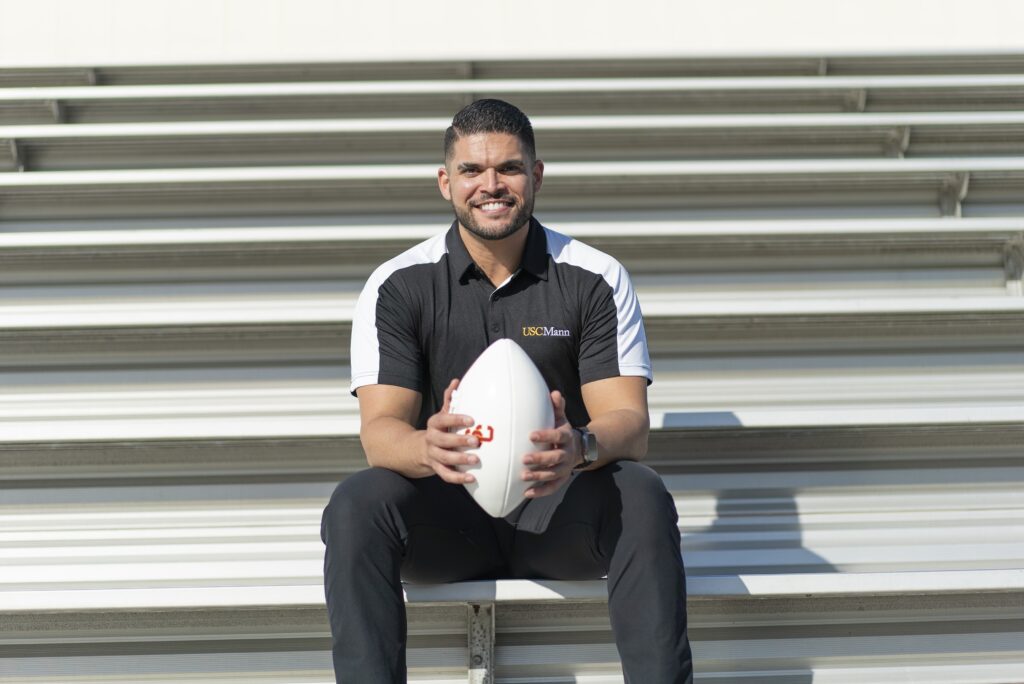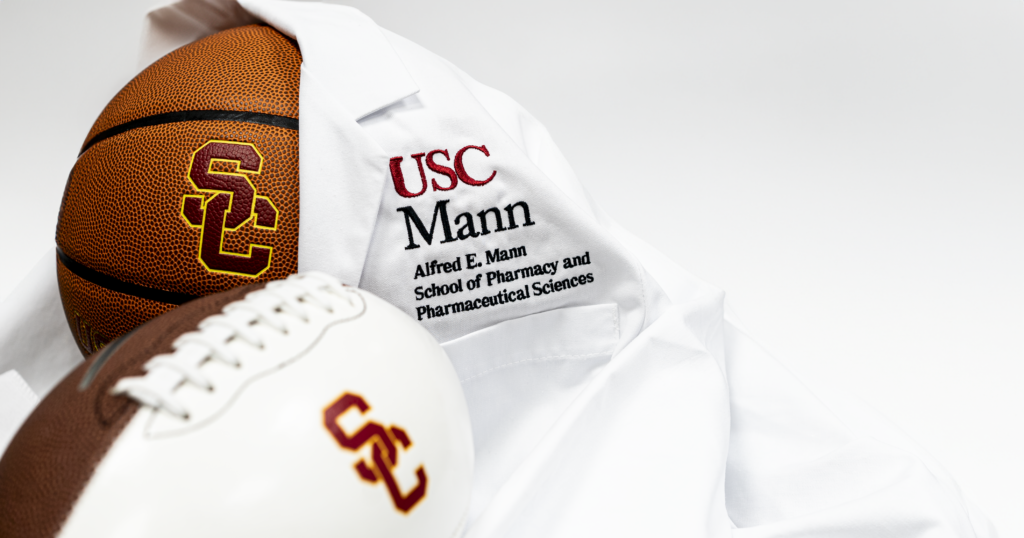
As the world looks ahead to the 2028 Olympics in L.A., USC Mann has hired a dedicated sports pharmacist, Michael Kessler, PharmD ’21, who will work as a member of the interprofessional USC Athletics health care team. His hire – along with several new elective courses, pharmacy rotations and a new certification program – makes USC the first university and pharmacy school in the country to launch a comprehensive sports pharmacy program.
Kessler has long been interested in sports pharmacy; he holds a master’s degree in kinesiology and exercise science from California State University, Long Beach and a bachelor’s degree in biological science/human exercise physiology from Chapman University. Here, he discusses his new role at USC and the importance of sports pharmacy.
What is your role as a sports pharmacist?
As a sports pharmacist, I make sure that when athletes are getting care, it’s going to be safe and effective, and it’s not going to be prohibited by the organization they fall under – whether it’s the Olympics Committee or the NCAA. I also look at the supplements they may be taking and make sure that those are safe for consumption, and that there is a true indication for why they need to take them.
Will you be working with USC athletes?
In my role, I will serve as an extension of the providers for USC Athletics. I will be working closely with athletic medicine—exclusively for athletes. I serve as a resource for the athletes to answer any questions they have about dietary supplements, prohibited drug policies and over-the-counter or prescription medications.
Why do you think sports pharmacy is an important specialty?
When you look at an athlete, they are considered to be part of a healthy population. Most people don’t think that athletes need any sort of chronic medications because they are considered to be “super healthy.” But athletes try to maintain optimal health while following strict guidelines: what they are prohibited from doing, and what they are not allowed to take in order to compete professionally. Many athletes I’m working with at USC are between 18 to 25 years old, and now they have a specialist on standby when they are making important decisions such as what [supplements or medications] to take.
What do you hope to contribute as a sports pharmacist?
The field of sports pharmacy is not really being looked at as a “need.” Athletes are frequently overlooked because of their healthy image, but many don’t realize they are held to a strict list of prohibited medications or supplements that they cannot understand, while it’s their sole responsibility to know that they are taking and whether or not they are allowed to take them.
As pharmacists, our training and education can help them, and we are the ones who should be able to interpret that list for them, and help them decide whether they can or cannot take something.
Learn more about the USC Mann Sports Pharmacy Program.


